Find Help
More Items From Ergsy search
-

Cervical screening: Q&A | NHS
Relevance: 100%
-

The NHS is #StillHereToHelp with cervical screening
Relevance: 96%
-
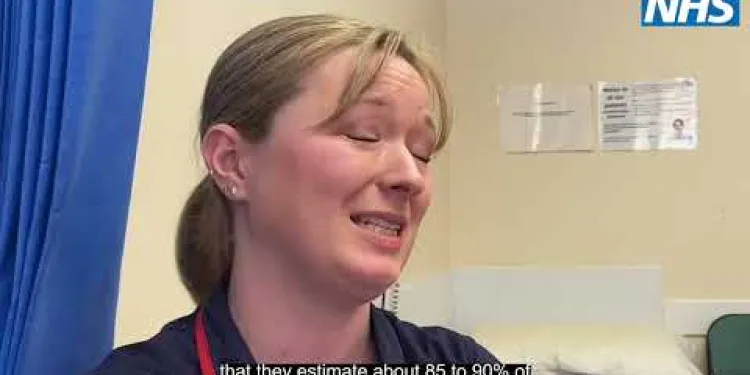
What is cervical screening (smear test)?
Relevance: 93%
-

Cervical screening: what to expect | NHS
Relevance: 92%
-
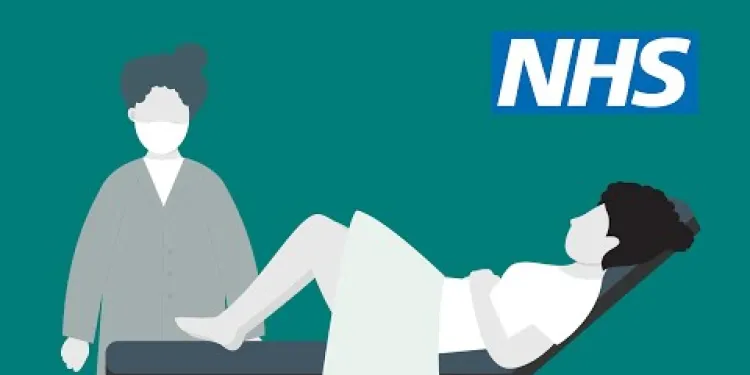
Cervical screening: how it's done | NHS
Relevance: 92%
-
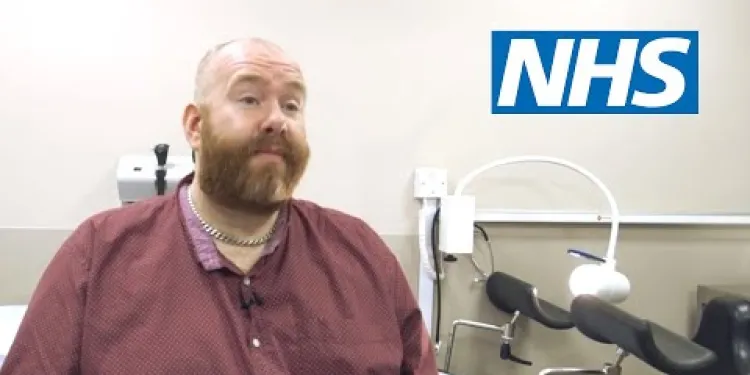
Cervical screening for transgender men | NHS
Relevance: 92%
-

Cervical screening: what to expect | NHS
Relevance: 91%
-

NHSGGC - Cervical Cancer Screening - English
Relevance: 91%
-

When should cervical cancer screening begin?
Relevance: 89%
-

Don’t ignore your cervical screening invite | NHS
Relevance: 86%
-

Cervical screening (smear test) – what’s it all about?
Relevance: 86%
-

Accessing cervical screening with the right support for people with a learning disability
Relevance: 82%
-

Cervical screening for women who have experienced sexual assault | NHS
Relevance: 81%
-
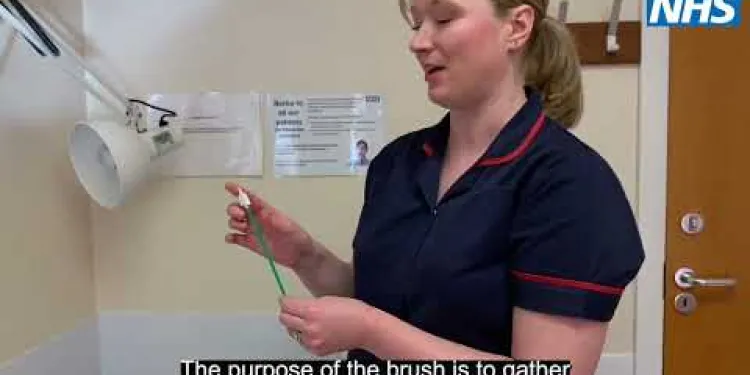
Booked in for your smear test (cervical screening) and not sure what to expect?
Relevance: 78%
-

What is the link between HPV and cervical cancer?
Relevance: 70%
-

Health Screenings You Should Know About
Relevance: 59%
-

What kinds of cancer screening are available?
Relevance: 58%
-

What is cancer screening?
Relevance: 56%
-
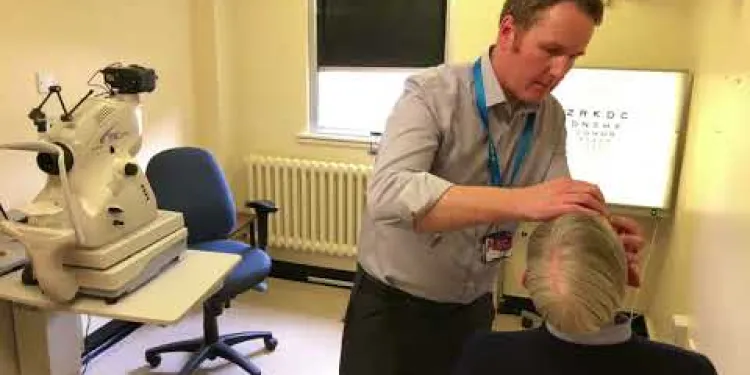
Derbyshire Diabetic Eye Screening - Diabetic Eye Screening
Relevance: 40%
-
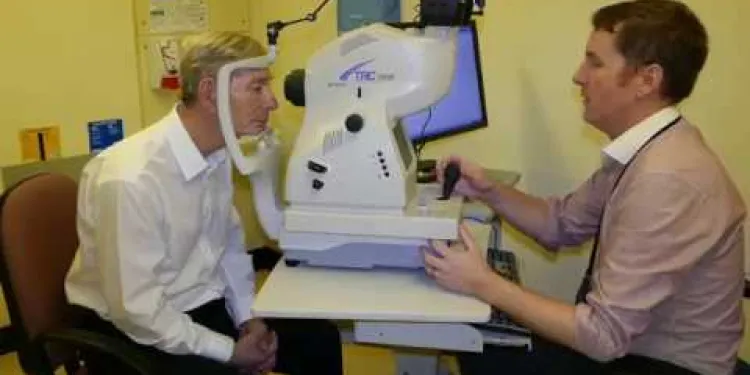
Derbyshire Diabetic Eye Screening - Your Screening Appointment
Relevance: 40%
-

Diabetes Eye Screening
Relevance: 39%
-

Is HPV testing available?
Relevance: 39%
-

AI Breast Cancer Screening in the UK
Relevance: 39%
-
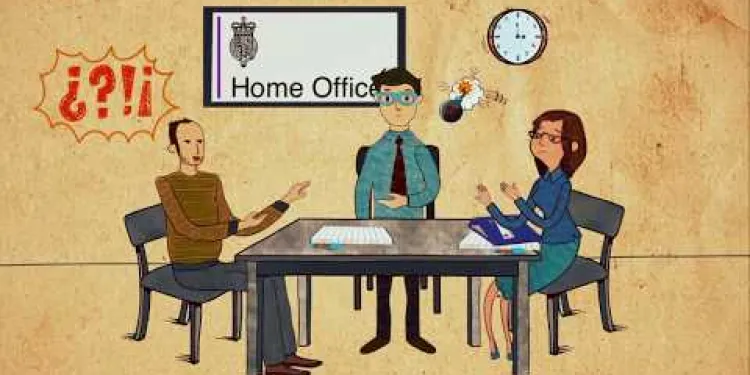
The asylum screening interview
Relevance: 39%
-

NHS breast cancer screening
Relevance: 38%
-

Are there eco-friendly mosquito screen options?
Relevance: 38%
-

Are mosquito window screens effective in the UK?
Relevance: 38%
-

Are Mosquito window screens effective?
Relevance: 38%
-

Are there retractable mosquito screens available?
Relevance: 38%
-

Is screening painful or risky for my child?
Relevance: 38%
-
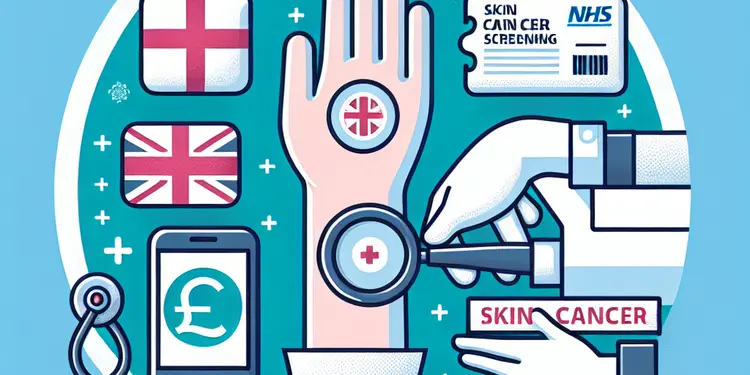
What is a skin cancer screening?
Relevance: 38%
-

How do I maintain my mosquito screens?
Relevance: 37%
-

Can pets damage mosquito screens?
Relevance: 36%
-

Do mosquito screens add value to my home?
Relevance: 36%
-

Is genetic screening available for cancer risk?
Relevance: 36%
-

Are mosquito screens effective against midges?
Relevance: 36%
-

AAA (Abdominal aortic aneurysm) screening
Relevance: 36%
-

What are the limitations of type 1 diabetes screening?
Relevance: 36%
-

Do mosquito screens provide insulation benefits?
Relevance: 36%
-

Can HPV lead to cancer?
Relevance: 36%
Cervical Screening: How It's Done | NHS
What is Cervical Screening?
Cervical screening, also known as a smear test, is a vital procedure offered by the NHS to prevent cervical cancer. The test checks the health of cells in the cervix, the lower part of the womb connecting to the vagina. It's not a test for cancer but a method to detect abnormal cell changes that could potentially develop into cancer if left untreated.
Who Should Attend Cervical Screening?
In the United Kingdom, cervical screening is offered to women and people with a cervix aged 25 to 64. Invitations for regular screenings are sent by the NHS every three years for those aged 25 to 49, and every five years for those aged 50 to 64. It is crucial not to ignore these invitations, as early detection of abnormal cells can significantly reduce the risk of cervical cancer.
Preparing for the Test
Before your cervical screening appointment, there are a few steps you can take to help make the process smoother. Ideally, book your appointment for a time when you're not having your period. Wear a comfortable outfit, as you will need to undress from the waist down. If you feel anxious about the test, talking to your nurse beforehand can help ease your concerns.
The Cervical Screening Procedure
The screening itself is straightforward and usually takes around 5 minutes. During the test, a nurse or doctor will ask you to lie on your back with your knees bent and apart. They will gently insert a speculum into your vagina to hold it open and use a small soft brush to take a sample of cells from your cervix. You might feel some discomfort, but the procedure should not be painful.
After the Test
Once the sample is taken, it will be sent to a laboratory for analysis. You should receive your results within 2 weeks. The results may show that your cervix is healthy, or that there are minor cell changes which might require further follow-up. In rare cases, significant abnormalities could be found, necessitating additional tests or treatment.
Why Cervical Screening is Important
Cervical screening plays a crucial role in preventing cervical cancer by detecting early changes in cervical cells. Attending regular screenings significantly lowers the risk of developing cervical cancer, ensuring early intervention when necessary. It is a quick, simple, and potentially life-saving procedure that contributes to the overall well-being of women across the UK.
Conclusion
Understanding the cervical screening process and attending your appointments when invited is essential for maintaining your health. The NHS provides a reliable and effective cervical screening service aimed at preventing cervical cancer and promoting women's health. Do not hesitate to reach out to your GP with any questions or concerns you may have regarding cervical screening.
Cervical Screening: How It's Done | NHS
What is Cervical Screening?
Cervical screening is also called a smear test. It is a test to help prevent cervical cancer. The NHS offers this test. It checks the health of cells in the cervix. The cervix is the lower part of the womb that joins the vagina. The test does not check for cancer but looks for changes in the cells that could become cancer later if not treated.
Who Should Attend Cervical Screening?
In the UK, women and people with a cervix aged 25 to 64 should have cervical screening. The NHS sends letters to invite you. If you are between 25 and 49, you get an invite every three years. If you are between 50 and 64, you get one every five years. It is very important to go to these tests. Finding changes early can lower the chance of getting cervical cancer.
Preparing for the Test
Before your cervical screening appointment, you can do a few things to prepare. Try to book it for a time when you are not on your period. Wear something comfortable because you will need to take off clothes from the waist down. If you feel nervous, you can talk to your nurse before the test. It might help you feel better.
The Cervical Screening Procedure
The screening is simple and usually takes about 5 minutes. A nurse or doctor will ask you to lie on your back with your knees bent and apart. They will gently put a tool called a speculum into your vagina to open it a little. Then, they use a small soft brush to take some cells from your cervix. You might feel a bit uncomfortable, but it should not hurt.
After the Test
After the sample is taken, it goes to a lab to be checked. You should get your results in about 2 weeks. The results could show your cervix is healthy or if there are minor changes in the cells. Sometimes more tests or treatment might be needed if there are bigger changes.
Why Cervical Screening is Important
Cervical screening is very important because it can stop cervical cancer from happening. It finds changes in cells early. Going to your tests lowers your risk of getting cervical cancer. It is a quick and simple test that can save lives and keep women healthy in the UK.
Conclusion
It is important to know how cervical screening works and to go to your appointments. The NHS offers a good service to help stop cervical cancer and keep women healthy. If you have questions or worries about cervical screening, talk to your GP. They are there to help you.
Frequently Asked Questions
What is cervical screening?
Cervical screening (a smear test) checks the health of your cervix. It's a way to prevent cervical cancer by finding and treating abnormal cells early.
Who should get cervical screening?
Women and people with a cervix aged 25 to 64 should have regular cervical screening.
How often should I have a cervical screening?
In the UK, those aged 25 to 49 should be screened every 3 years, and those aged 50 to 64 every 5 years.
What happens during a cervical screening?
A small sample of cells will be taken from your cervix using a soft brush. The test itself is usually very quick, taking only a few minutes.
Is cervical screening painful?
Some people may find cervical screening uncomfortable or a bit embarrassing, but it should not be painful. You can ask your healthcare professional to stop at any time if you need a break.
How do I prepare for a cervical screening?
There's no special preparation needed, but it's best to avoid scheduling your test during your period as this can affect the results.
What should I wear to my cervical screening appointment?
Wear something comfortable. You’ll be asked to remove clothing from your lower body, but a skirt might be more comfortable if you prefer to keep something on.
Can I have cervical screening if I'm pregnant?
It’s usually best to delay cervical screening until 12 weeks after childbirth. Discuss with your GP or midwife if screening is due during your pregnancy.
What happens if my cervical screening result is abnormal?
If the results are abnormal, you may need further tests to check for HPV (human papillomavirus) or more severe cell changes and decide if any treatment is needed.
Can I still have a cervical screening if I’ve had the HPV vaccine?
Yes, you should still attend cervical screening when invited. The HPV vaccine doesn’t protect against all types of HPV that can cause cervical cancer.
Where can I have my cervical screening done?
Cervical screening is usually done at your GP surgery or a local sexual health clinic.
Can I bring someone with me to my cervical screening appointment?
Yes, you can bring a friend or family member with you for support if it helps you feel more comfortable.
What if I miss my cervical screening appointment?
You can contact your GP surgery or clinic to reschedule your appointment if you miss it.
Will the results of my cervical screening be confidential?
Yes, your results will be treated confidentially and only shared with you and the healthcare professionals involved in your care.
What should I do if I’m worried about my cervical screening test?
If you have concerns or questions, speak to your GP or nurse. They can provide you with information and reassurance about the procedure.
What is cervical screening?
Cervical screening is a health test for women. It checks the cervix, which is the lower part of the womb. This test looks for changes that might become dangerous if not treated.
Things to help:
- Ask a nurse or doctor if you have questions.
- Write down what happens during the test.
- Use pictures or videos to learn more.
A smear test checks if your cervix is healthy. It helps stop cervical cancer by finding and fixing bad cells before they cause problems.
Here are some tips to make reading easier:
- Use a ruler or your finger to follow the lines.
- Read out loud to help understand the words.
- Take breaks if you feel tired.
Who Should Have a Cervical Screening Test?
If you are a woman or person with a cervix, you might need a special health test called a cervical screening.
This test can help keep you healthy by finding problems early.
It is important to talk to your doctor or nurse about when you should have this test.
You can ask questions if you are worried or want to know more.
Women and people with a cervix who are between 25 and 64 years old should have regular checks to keep their cervix healthy.
When should I get a cervical screening test?
You should get a cervical screening test every few years. It helps keep you healthy.
Here is a simple way to remember:
- If you are 25 to 49 years old: Get the test every 3 years.
- If you are 50 to 64 years old: Get the test every 5 years.
Ask your doctor if you have questions. They can help you.
You can use calendars or phone reminders to help you remember when to get your test.
In the UK, people who are 25 to 49 years old should get checked every 3 years.
People who are 50 to 64 years old should get checked every 5 years.
What happens during a cervical screening?
A nurse or doctor checks your cervix. The cervix is inside a woman’s body where the baby grows. They use a small soft brush to take a tiny sample of cells. It is very quick, and it might feel a little strange, but it should not hurt.
Things that might help:
- Try to relax and breathe slowly.
- You can ask questions if you are worried.
- You can take someone you trust with you.
A doctor or nurse will use a soft brush to take a little bit of cells from your cervix. This test does not take long, usually just a few minutes.
Does a cervical screening hurt?
A cervical screening is a test for women. It checks if everything is healthy.
Some women feel a bit of pressure during the test. It might feel uncomfortable, but it should not hurt.
If you feel pain, tell the nurse or doctor.
You can take deep breaths to help feel calm. You can also bring a friend for support.
Getting a cervical screening test might not feel nice or could make you feel shy, but it should not hurt. You can tell the doctor or nurse to stop if you want to take a break.
How can I get ready for a cervical screening?
Cervical screening checks your cervix to keep you healthy.
Here are some tips to help you get ready:
- Wear a comfy outfit. This makes it easier.
- Pick a time when you are not on your period.
- Talk to the nurse if you are worried. They can help you feel better.
If reading is hard, ask someone you trust to read with you.
You can also use apps that help read text out loud.
You don't need to do anything special to get ready. But it is a good idea not to have the test when you have your period because this can change the results.
What should I wear to my cervical screening appointment?
Here are some tips for what to wear:
- Wear a skirt or loose pants. You can keep them on when the nurse checks you.
- Choose clothes that are easy to remove from the waist down.
- You might feel more comfortable in a longer shirt or top.
If you have questions, ask the nurse. They are there to help you.
Wear clothes that feel good. You will need to take off your pants or shorts. But you can wear a skirt if you want to keep something on.
Can I have a cervical screening if I'm pregnant?
If you are going to have a baby, you might wonder about cervical screening. It is important to know what to do. Here is some simple advice:
- If you are pregnant, you might not need a cervical screening right now.
- It is safe to wait until after the baby is born.
- Talk to your doctor or nurse for the best advice.
Remember, if you have questions, it is good to ask a grown-up you trust. You can use tools like pictures or simple charts to help understand.
It is best to wait 12 weeks after having a baby before having a cervical screening test. Talk to your doctor or midwife if your test is due while you are pregnant.
What if my cervical screening test is not normal?
If the test results are not normal, you might need more tests. These tests check for something called HPV, which is a virus. They also look for bigger changes in the cells. This helps doctors decide if you need any treatment.
Can I get a cervical screening if I had the HPV vaccine?
Yes, you should still get a cervical screening even if you had the HPV vaccine. The vaccine helps protect you, but it doesn't stop all HPV types. A cervical screening checks for HPV and other changes in the cervix.
The screening helps doctors find any problems early. This way, they can keep you healthy. It's important to go when you're invited.
If you find reading hard, it's okay to ask someone you trust for help. You can also use tools like audiobooks or reading apps to make it easier.
Yes, you should still go for a cervical screening test when they ask you to come. The HPV shot does not stop all the HPV types that can cause cervical cancer.
Where can I get my cervical screening?
You can go to your doctor's office for a cervical screening. This is also called a smear test. You might also be able to have it done at a health clinic or hospital.
If you need help, you can ask someone you trust to come with you. They can help you feel more comfortable.
You can also look online for more information, or ask your doctor if you have questions.
Cervical screening is a health check. You can have it done at your doctor’s office or a nearby sexual health clinic.
Can I bring someone with me to my cervical screening appointment?
Yes, you can bring someone with you to your cervical screening. This person can be a friend or a family member. They can support you and help you feel comfortable.
Some people find it helpful to use tools to stay calm. You can try deep breathing or listening to relaxing music.
If you have questions, you can ask the doctor or nurse. They are there to help you.
You can bring someone with you, like a friend or family member, if it makes you feel better.
What happens if I miss my cervical screening appointment?
If you miss your cervical screening, don't worry. You can call your doctor to arrange a new appointment. Try to go when you feel ready.
Here are some helpful tips:
- Ask a friend or family member to remind you about your new appointment.
- Use a calendar or phone alarm to keep track of your visit date.
- If you feel nervous, talk to your doctor. They can help you feel better.
If you miss your doctor's appointment, you can call your doctor's office or clinic to make a new one.
Will my cervical screening results be private?
Yes, your cervical screening results will be private. This means only you and your doctor can see them. If you need help understanding your results, you can ask a friend, family member, or a healthcare worker to explain them to you. It's okay to ask questions if you're unsure about anything!
Yes, your test results are private. Only you and the doctors or nurses who take care of you will see them.
What to do if you are worried about your cervical screening test
If you feel worried about your cervical screening test, here are some things you can do:
- Talk to someone you trust, like a family member or a friend.
- Speak with your doctor or nurse. They can answer your questions.
- Write down what is making you worried and share it with your doctor.
- Ask the nurse or doctor to explain what will happen during the test.
- Use pictures or videos that show how the test is done. This can help you understand better.
Remember, it’s okay to feel worried. Lots of people feel the same way.
If you are worried or have questions, talk to your doctor or nurse. They can give you information and make you feel better about what will happen.
Useful Links
Have you found an error, or do you have a link or some information you would like to share? Please let us know using the form below.
-->
This website offers general information and is not a substitute for professional advice.
Always seek guidance from qualified professionals.
If you have any medical concerns or need urgent help, contact a healthcare professional or emergency services immediately.
Some of this content was generated with AI assistance. We’ve done our best to keep it accurate, helpful, and human-friendly.
- Ergsy carfully checks the information in the videos we provide here.
- Videos shown by Youtube after a video has completed, have NOT been reviewed by ERGSY.
- To view, click the arrow in centre of video.
- Most of the videos you find here will have subtitles and/or closed captions available.
- You may need to turn these on, and choose your preferred language.
- Go to the video you'd like to watch.
- If closed captions (CC) are available, settings will be visible on the bottom right of the video player.
- To turn on Captions, click settings .
- To turn off Captions, click settings again.
More Items From Ergsy search
-

Cervical screening: Q&A | NHS
Relevance: 100%
-

The NHS is #StillHereToHelp with cervical screening
Relevance: 96%
-

What is cervical screening (smear test)?
Relevance: 93%
-

Cervical screening: what to expect | NHS
Relevance: 92%
-

Cervical screening: how it's done | NHS
Relevance: 92%
-

Cervical screening for transgender men | NHS
Relevance: 92%
-

Cervical screening: what to expect | NHS
Relevance: 91%
-

NHSGGC - Cervical Cancer Screening - English
Relevance: 91%
-

When should cervical cancer screening begin?
Relevance: 89%
-

Don’t ignore your cervical screening invite | NHS
Relevance: 86%
-

Cervical screening (smear test) – what’s it all about?
Relevance: 86%
-

Accessing cervical screening with the right support for people with a learning disability
Relevance: 82%
-

Cervical screening for women who have experienced sexual assault | NHS
Relevance: 81%
-

Booked in for your smear test (cervical screening) and not sure what to expect?
Relevance: 78%
-

What is the link between HPV and cervical cancer?
Relevance: 70%
-

Health Screenings You Should Know About
Relevance: 59%
-

What kinds of cancer screening are available?
Relevance: 58%
-

What is cancer screening?
Relevance: 56%
-

Derbyshire Diabetic Eye Screening - Diabetic Eye Screening
Relevance: 40%
-

Derbyshire Diabetic Eye Screening - Your Screening Appointment
Relevance: 40%
-

Diabetes Eye Screening
Relevance: 39%
-

Is HPV testing available?
Relevance: 39%
-

AI Breast Cancer Screening in the UK
Relevance: 39%
-

The asylum screening interview
Relevance: 39%
-

NHS breast cancer screening
Relevance: 38%
-

Are there eco-friendly mosquito screen options?
Relevance: 38%
-

Are mosquito window screens effective in the UK?
Relevance: 38%
-

Are Mosquito window screens effective?
Relevance: 38%
-

Are there retractable mosquito screens available?
Relevance: 38%
-

Is screening painful or risky for my child?
Relevance: 38%
-

What is a skin cancer screening?
Relevance: 38%
-

How do I maintain my mosquito screens?
Relevance: 37%
-

Can pets damage mosquito screens?
Relevance: 36%
-

Do mosquito screens add value to my home?
Relevance: 36%
-

Is genetic screening available for cancer risk?
Relevance: 36%
-

Are mosquito screens effective against midges?
Relevance: 36%
-

AAA (Abdominal aortic aneurysm) screening
Relevance: 36%
-

What are the limitations of type 1 diabetes screening?
Relevance: 36%
-

Do mosquito screens provide insulation benefits?
Relevance: 36%
-

Can HPV lead to cancer?
Relevance: 36%


